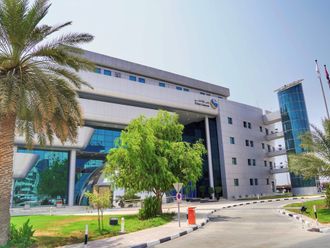Abu Dhabi: The UAE has developed around eight standards for genetically modified foods as it is committed to safeguarding the community and ensuring that all products introduced into the market conform to a high standard of safety, Dr Rashid Ahmad Bin Fahd, Minister of Environment and Water, told members of the Federal National Council yesterday
“Concerns are not about food safety but rather about these foods’ effect on the environment and biological diversity,” Dr Bin Fahd said.
Ali Eisa Al Nuaimi, a member from Ajman, quizzed Dr Bin Fahd on how genetically modified foods are regulated in the UAE.
Genetically modified foods are foods derived from organisms whose genetic material (DNA) has been modified in a way that does not occur naturally, eg, through the introduction of a gene from a different organism.
Currently available GM foods stem mostly from plants, but in the future foods derived from GM microorganisms or GM animals are likely to be introduced in the market. Most existing genetically modified crops have been developed to improve yield, through the introduction of resistance to plant diseases or of increased tolerance of herbicides.
Al Nuaimi said he was concerned about genetically modified foods, citing reports about the potential risks to human health.
Dr Bin Fahd stressed the safety of GM foods is assessed with regard to direct health effects, tendencies to provoke allergic reaction, specific components thought to have nutritional or toxic properties and the nutritional effects associated with genetic modification.
He said that rigorous evaluation of GM foods relative to both human health and the environment must be made.
Several countries have adopted strategies to reduce mixing, including a clear separation of the fields within which GM crops and conventional crops are grown.
Feasibility and methods for post-marketing monitoring of GM food products, for the continued surveillance of the safety of GM food products, are under discussion.












